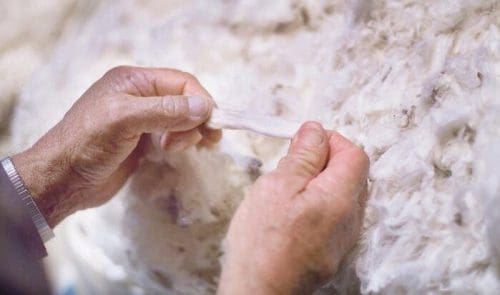 AN east coast carbon dioxide shortage has impacted Australia’s wool testing ability, but sole provider AWTA Ltd has assured the trade it will be able to meet immediate demand for test results for this week’s auction sales.
AN east coast carbon dioxide shortage has impacted Australia’s wool testing ability, but sole provider AWTA Ltd has assured the trade it will be able to meet immediate demand for test results for this week’s auction sales.
Last Wednesday morning, the Australian Wool Testing Authority notified the trade that a plant breakdown at a critical supplier without notice had limited its ability to issue wool tests. This only impacted the Melbourne laboratory. The Perth laboratory was not impacted.
Carbon dioxide is used at its laboratories to treat the effluent from wool yield testing before it’s released. However, due to the gas shortage, AWTA’s effluent storage holding capacity became temporarily full.
AWTA advised the trade that neither BOC Gas nor Air Liquide could provide a timeframe to rectify the shortage, and that medical facilities were being prioritized.
However, by Wednesday afternoon AWTA had resumed issuing test results, although at a reduced capacity. AWTA said additional measures to address the CO2 shortage would be implemented by Thursday morning.
AWTA’s sampling operations manager – raw wool for eastern Australia, Tim Steere, told Sheep Central last Friday AWTA normally treated the effluent with CO2 before it departed the premises.
“BOC are unable supply CO2 to refill AWTA’s bulk tank until it repairs its own plant.
“We don’t really have a timeline yet, but we are hoping that it is repaired by next (this) week.”
In the interim, Mr Steere said AWTA had found a solution to treating the effluent that was not as rapid.
“So the capacity in the laboratory is reduced slightly for the time being; however, we are able to get everything out for a sale.
“So every sample that is needed for next (this) week’s sales has gone through and the results are out.”
Mr Steere said demand for wool sale testing is normally expected to slow down at this time of the year.
“So we are confident that we will be able to continue testing in the short-term until the plant is repaired and we are confident we will be able to meet deadlines.
“And this doesn’t affect results; no part of the testing process is changed, only dealing with the effluent,” he said.
“This is not going to change or influence test results one iota.”
BOC is working to manage production outages
A BOC statement said the company is currently experiencing CO2 shortages along the east coast of Australia and Tasmania, due to unplanned outages at several production facilities in its CO2 supply chain.
“We are working collaboratively with suppliers, customers and other industry stakeholders to manage the CO2 supply situation.
This includes sourcing additional CO2 supplies from overseas and increasing CO2 supply from other production facilities in Australia,” the company statement said.
“In Victoria, Tasmania and South Australia, BOC is prioritising supply of CO2 to critical medical, safety and water customers.
“Allocations for other customers are being reviewed regularly in line with product availability,” the company said.
“BOC is committed to increasing long-term CO2 reliability and supply for our customers. This includes investing in a new CO2 processing facility in Victoria, which will have capacity to produce 60,000 tonnes of beverage-grade liquid CO2. This is expected to be operational in 2024.”

HAVE YOUR SAY